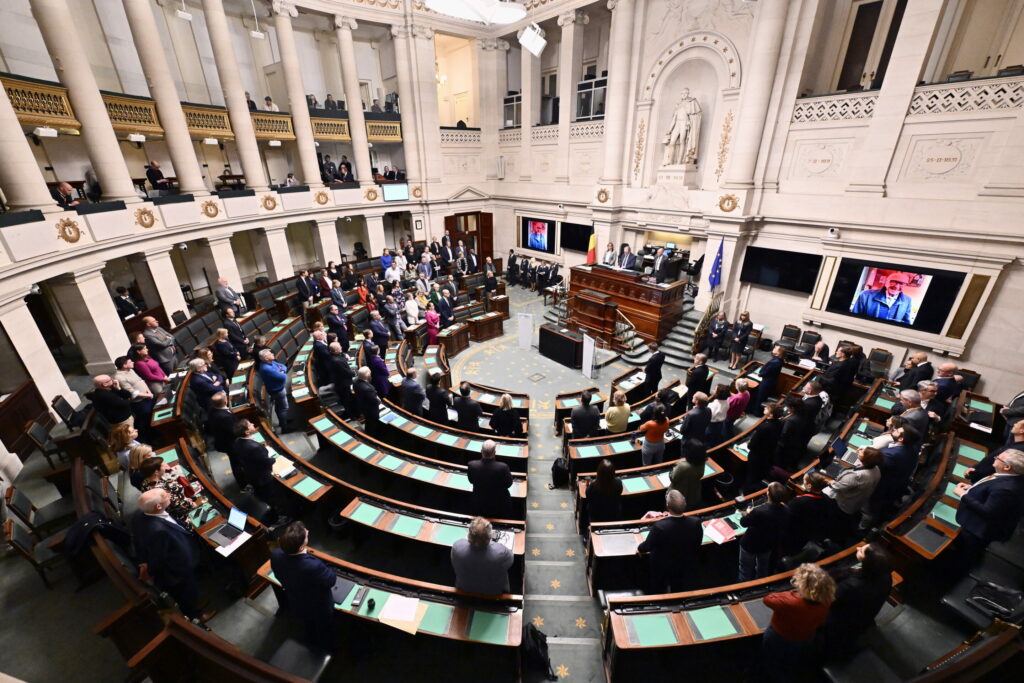The annual ceremony to commemorate the victims of the genocides our country recognises took place in the Chamber's Hemicycle on Friday.
Belgium officially recognises five genocides: the Armenian genocide, the Holocaust, the genocide in Cambodia, the Srebrenica massacre and the Rwandan genocide.
In November last year, the Chamber approved a resolution recognising the Holodomor – the man-made famine that killed the Ukrainians in 1932-33 – as genocide. The same happened with the 2014 genocide of the Yezidi by Islamic State in 2021. The government is yet to make these into official recognitions.
The commemoration was attended by representatives from the countries involved, as well as from the federal government, young people and members of parliament. Chamber president Peter De Roover (N-VA) stressed the importance of choosing one's words carefully.
According to him, there is a fine line between civilisation and barbarism. "Freedom of speech is the core of democracy. But with that freedom comes great responsibility," De Roover said. "Words must be spoken with caution."
The Chamber backed a resolution by Michel De Maegd (MR) in 2020 to make 9 December the national day for commemorating the victims of genocide. Since then, a ceremony has taken place every year in the federal parliament.
"A genocide always starts with words: hate discourse, ideologies that dehumanise," the Liberal MP said. "Ideas that - I regret it and it worries me - are increasingly finding their way into our society."
Laurence Schram, who is attached to the Kazerne Dossin barracks, urged attention to fake news or conspiracy theories, which "undermine the foundations of our democracy."
VRT journalist Katrien Vanderschoot called attention to ongoing conflicts, in Palestine, Sudan, DR Congo, Nigeria, Ukraine, Afghanistan, among others. Particular attention went to Rwanda, 30 years after the genocide.

